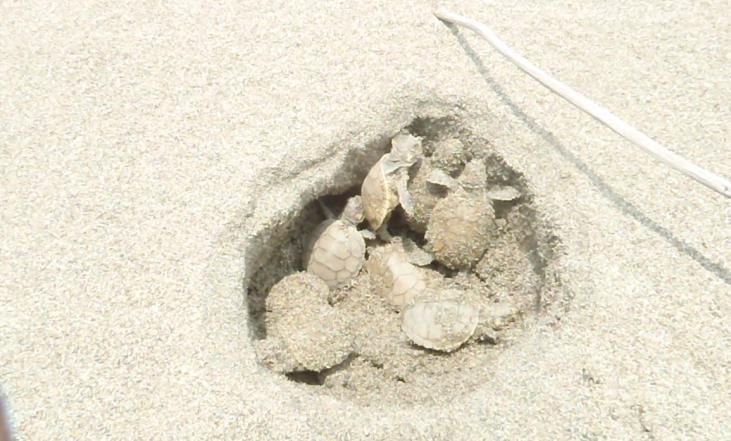Fernando Arbeláez
Other projects
25 Feb 2008
Initial Actions Towards the Conservation of Three Species of Endangered River Turtles in the Colombian Amazonia. Community-Based Nests Monitoring and Educational Pilot Programmes
9 Jul 2009
Community-Based Conservation Program of River Turtles by Indigenous Peruvian and Colombian Communities of the Amazon River
16 Apr 2014
Community-Based Conservation Program of Three Endangered Species of River Turtles with Amazonian Indigenous Communities of Colombia and Peru 2014
The aim of the project is to protect two main beaches of the area, one in each country during the 2012 nesting season by five LCG from four indigenous communities of Colombia and Peru, while raising awareness among neighbour communities about the importance of turtle conservation.

This Program started in 2008 based on a local initiative, and has focused on awareness-raising about turtle conservation, formation, training and capacity-building of Local Conservation Groups (LCG) in Colombian and Peruvian indigenous communities of the area.
To date, three experienced LCG and one in formation, each with between 6 to 15 men and women of all ages from Colombia and Peru, have been training as leaders in conservation motivated by their desire to preserve turtles for future generations. During consecutive nesting seasons, they have protected conservation beaches in the area where they prevent egg poaching and female hunting, while gathering basic biologic and reproductive data from the species. They have also carried out awareness-raising activities about the importance of turtle conservation, particularly focused on children from participating and neighbour communities. For example, at the end of the season, they invite children and leaders from the communities to witness hatching of the eggs and to help newborns reach the River.
The 2012 phase seeks to involve one more LCG from Peru to the program, totalling three experienced groups from Colombia and two groups in formation from Peru. They will protect the two main nesting beaches of the area, one in Colombia and one in Peru, with experienced groups training and transmitting their knowledge to the new groups. The program will continue supporting different sustainable economic initiatives from participating communities as reward for their conservation efforts. Finally it aims to promote conservation as a possible economic alternative for these communities.